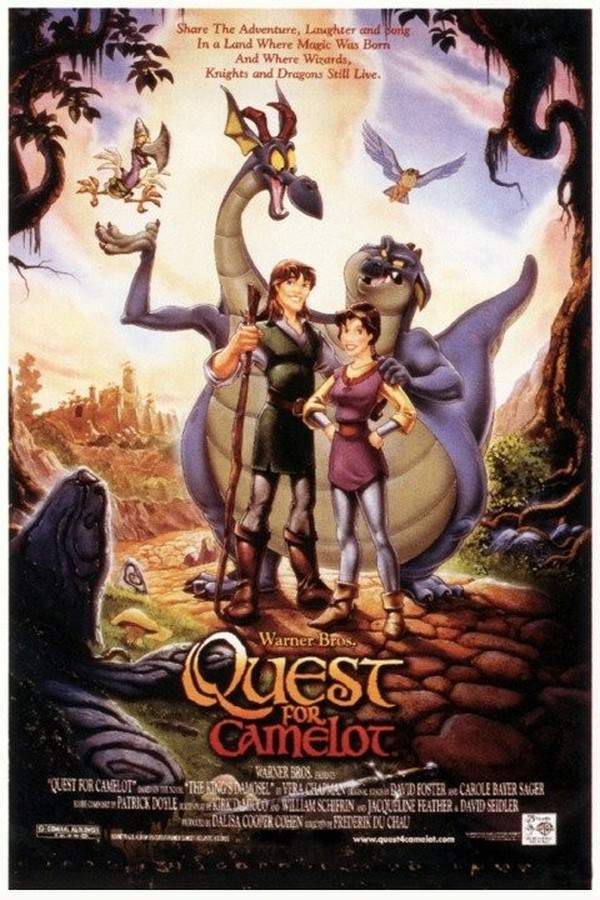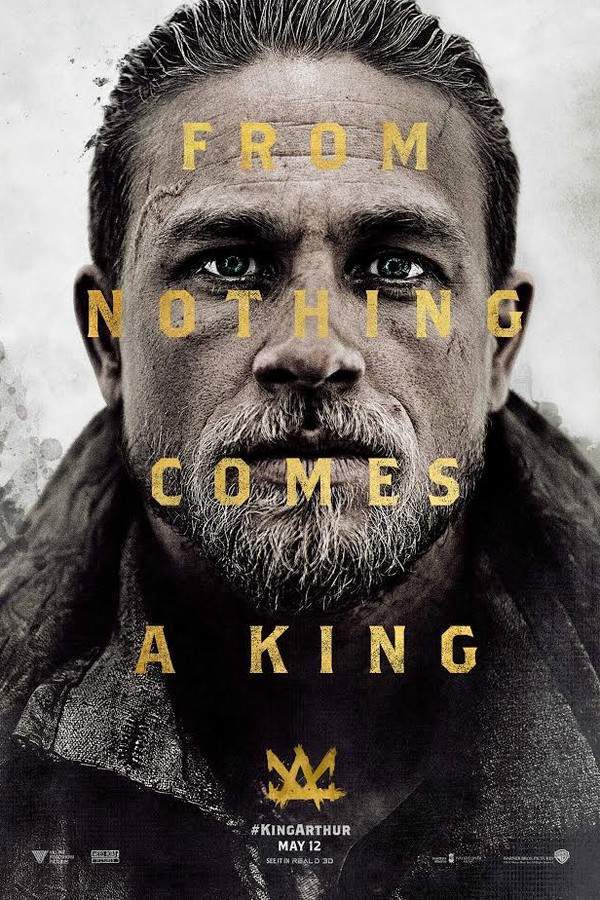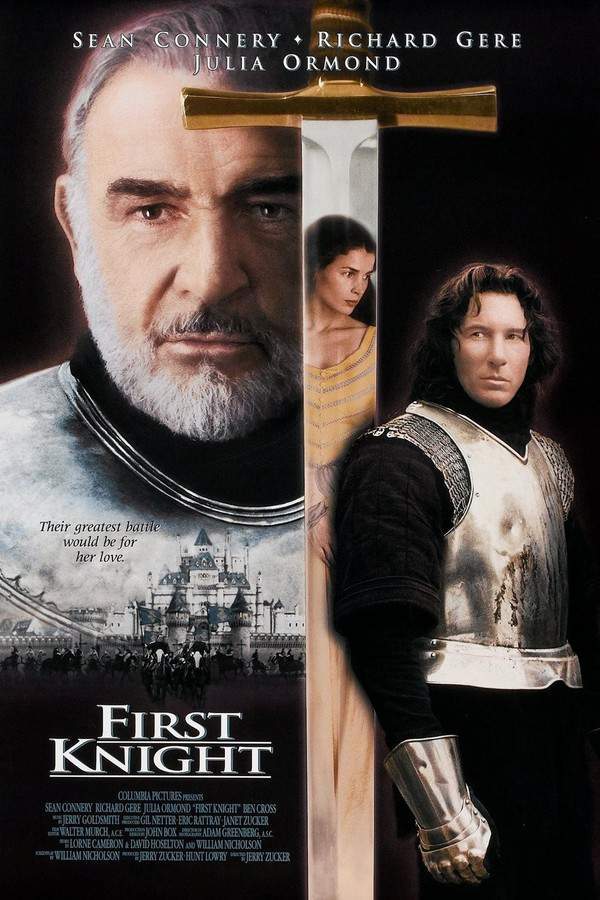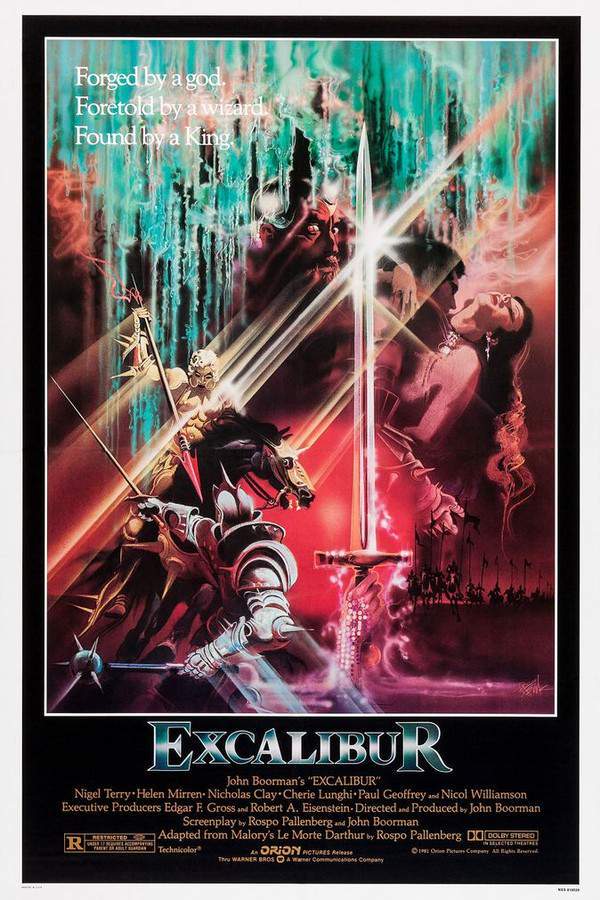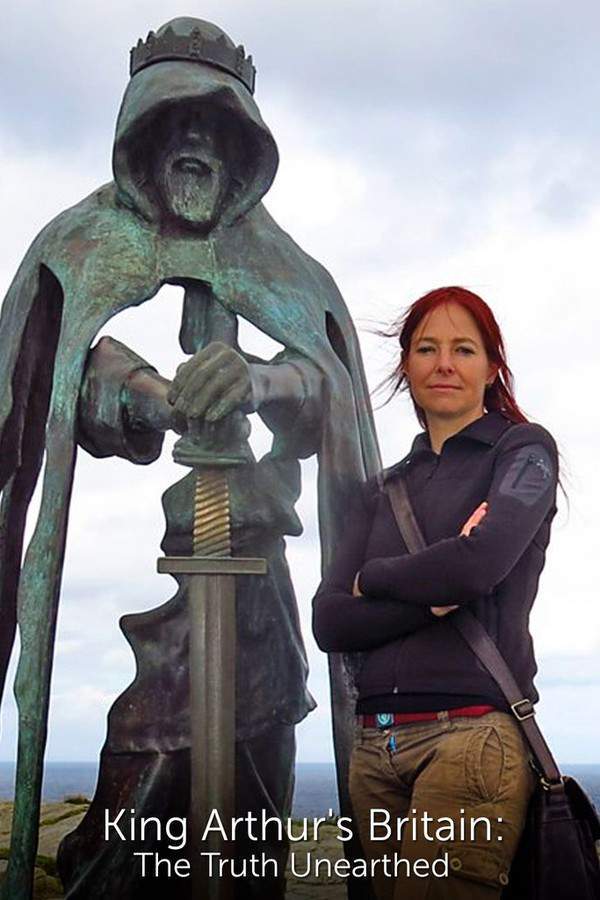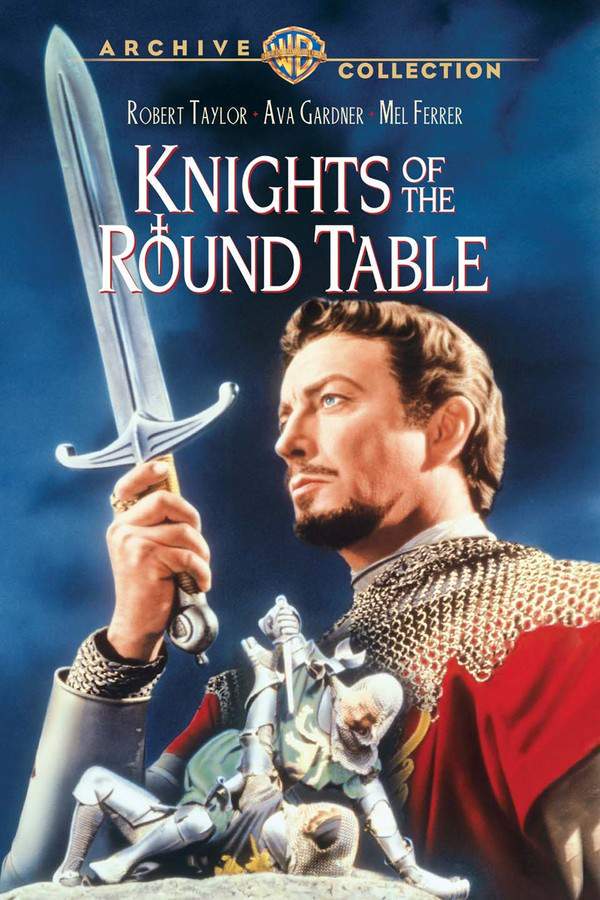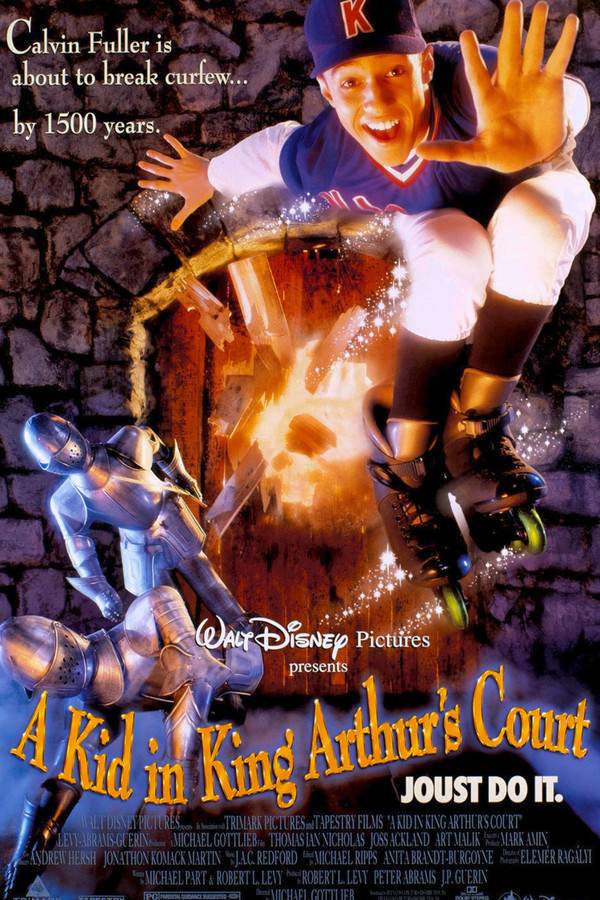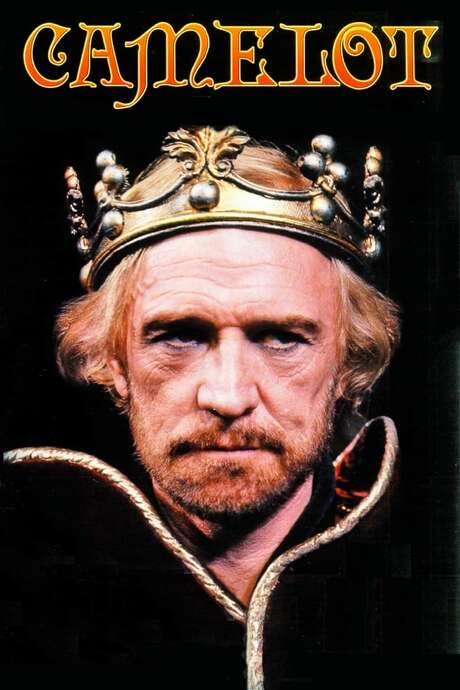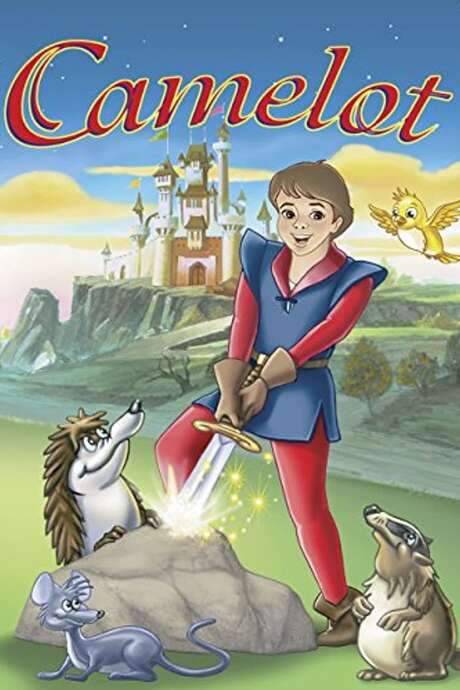Camelot 1967
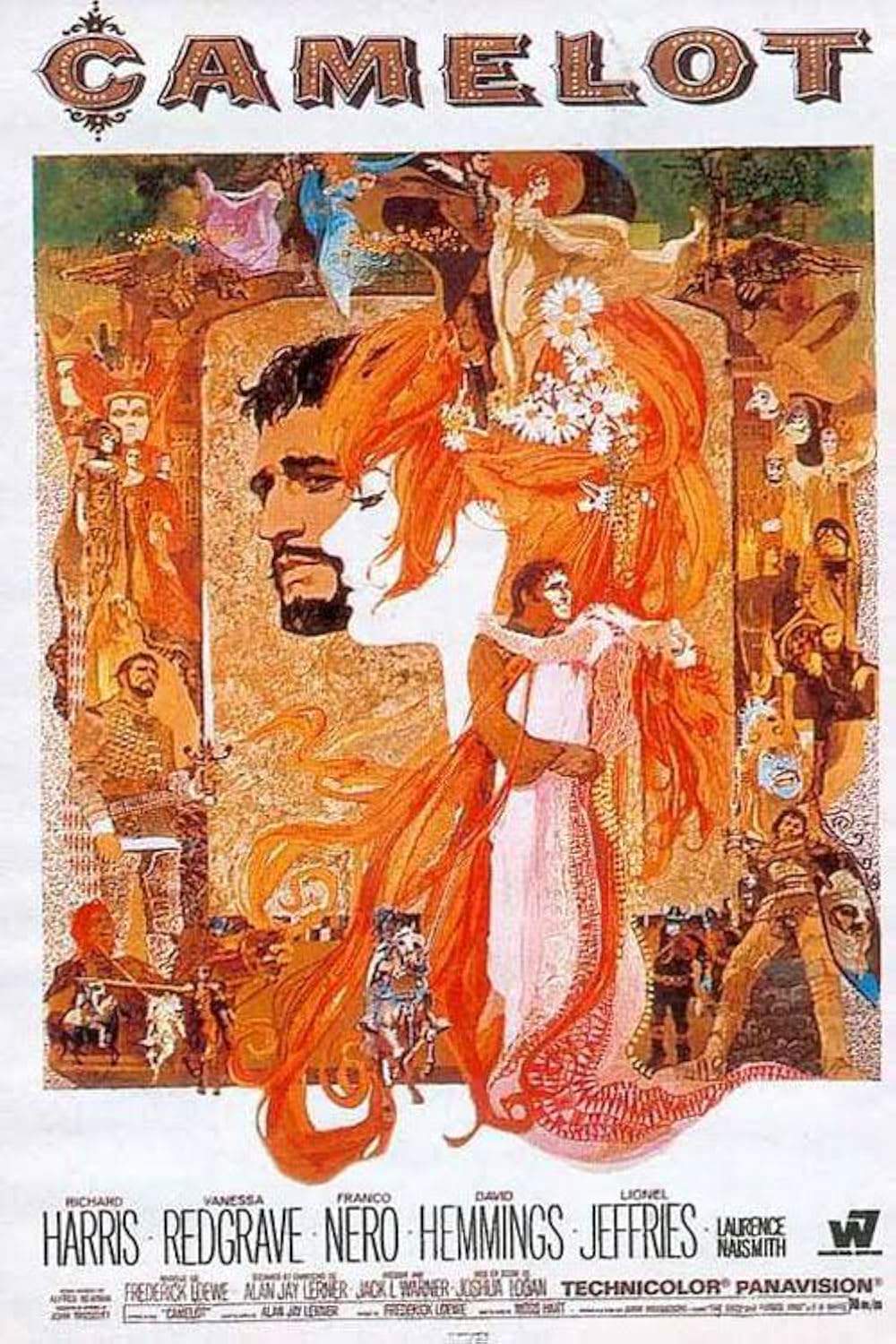
A young prince's journey to becoming king is guided by the wise sorcerer Merlin in this tale of chivalry and magic. Merlin vows to prepare Arthur for his rightful kingship, leading him on legendary quests filled with mythical creatures and challenges that will test his strength and wisdom. The fate of a kingdom rests on Arthur's ability to embrace his destiny and unite a land in need of a true leader.
Does Camelot have end credit scenes?
No!
Camelot does not have end credit scenes. You can leave when the credits roll.
Meet the Full Cast and Actors of Camelot
Explore the complete cast of Camelot, including both lead and supporting actors. Learn who plays each character, discover their past roles and achievements, and find out what makes this ensemble cast stand out in the world of film and television.
External Links and Streaming Options
Discover where to watch Camelot online, including streaming platforms, rental options, and official sources. Compare reviews, ratings, and in-depth movie information across sites like IMDb, TMDb, Wikipedia or Rotten Tomatoes.
Ratings and Reviews for Camelot
See how Camelot is rated across major platforms like IMDb, Metacritic, and TMDb. Compare audience scores and critic reviews to understand where Camelot stands among top-rated movies in its genre.

70
Metascore
4.8
User Score

6.6 /10
IMDb Rating

62
%
User Score
Take the Ultimate Camelot Movie Quiz
Challenge your knowledge of Camelot with this fun and interactive movie quiz. Test yourself on key plot points, iconic characters, hidden details, and memorable moments to see how well you really know the film.
Camelot (1967) Quiz: Test your knowledge of the classic musical adaptation of the Arthurian legend with a focus on characters, themes, and songs.
Who portrays King Arthur in the film?
Richard Harris
Peter O'Toole
Laurence Naismith
David Hemmings
Show hint
Awards & Nominations for Camelot
Discover all the awards and nominations received by Camelot, from Oscars to film festival honors. Learn how Camelot and its cast and crew have been recognized by critics and the industry alike.
40th Academy Awards 1968
Art Direction
Cinematography
Costume Design
Music (Scoring of Music—adaptation or treatment)
Sound
25th Golden Globe Awards 1968
Best Motion Picture - Drama


Best Original Score
Best Original Song
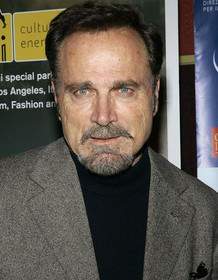
Full Plot Summary and Ending Explained for Camelot
Read the complete plot summary of Camelot, including all major events, twists, and the full ending explained in detail. Explore key characters, themes, hidden meanings, and everything you need to understand the story from beginning to end.
During the opening sequence, reminiscent of the Broadway adaptation, the studio orchestra presents a vibrant overture that includes both the Camelot March and the signature title song. The narrative unfolds in the shrouded darkness of dawn, where a chorus melodiously echoes lines from Guenevere. At this moment, King Arthur, portrayed by Richard Harris, seeks guidance from his unseen mentor, Merlyn. With the imminent clash against Lancelot and his Joyous Gard knights, Arthur grapples with internal questions, pondering where his journey took a wrong turn. Merlyn, surfacing, prompts him to recall one of the pivotal moments of his life, guiding the story into a series of flashbacks.
The first flashback reveals a young Arthur, known as Wart, portrayed by [Nicholas Beauvy]. In a tranquil morning setting, he wanders through a forest and encounters Merlyn, who chides him for overthinking. Merlyn directs Arthur’s focus to the day he met Guenevere, played by Vanessa Redgrave. The following scene portrays Arthur in a snow-laden tree, where he serenades the world below with I Wonder What the King Is Doing Tonight? confessing his fears about the arranged marriage. The procession bearing Guenevere soon arrives; however, she is less than thrilled about this union of political convenience. In her despair, she expresses her longing for the simple joys of maidenhood in her song, The Simple Joys of Maidenhood.
While Guenevere’s attendants prepare her for the wedding, she clandestinely slips away to pray in the woods, where Arthur accidentally falls from his hiding place. He assures her of his benign intentions, and they share a moment of connection. Arthur paints a promising picture of Camelot, claiming it to be a paradise for them to live joyfully. Guenevere, after a captivating reprise of Camelot, agrees to their marriage, leading to a communal celebration filled with song as they enter the city for their wedding.
Four years later, Arthur reflects on the chaotic state of England under corrupt lords, sparks the idea of establishing a new order of chivalry that champions right over might. Skeptical yet intrigued, Guenevere and Arthur express their vision through another reprise of Camelot. News of their new knighthood spreads rapidly, capturing the attention of Lancelot, who declares his eagerness to join Arthur’s cause through song. Lancelot’s grand entrance is marked by his confident declaration in C’est Moi!, as he praises Arthur’s noble vision.
However, an accident nearly leads to disaster when Lancelot and Arthur meet in a duel. Recognizing his blunder, Lancelot seeks forgiveness while Arthur, impressed by his prowess, offers immediate knighthood. As festivities continue, Guenevere rallies the court into playful revelry in The Lusty Month of May, bolstering a spirited atmosphere.
As Arthur introduces his new knight, the elderly King Pellinore hilariously returns to Camelot, stirring memories of when he knew the young Wart. The character dynamics deepen as Guenevere shows keen interest in Lancelot’s chivalrous ideas, causing playful tension between the knights. Despite Arthur’s authoritative stance, Guenevere plots a challenge to test Lancelot’s mettle.
The jousting events unfold with a circus-like flair, where Lancelot shines, even saving Sir Lionel from near defeat in an intense moment of compassion. The consequences of this triumph bear weight as Arthur senses a bond blossoming between Lancelot and Guenevere. In a poignant moment of introspection, Arthur contemplates his feelings for both, wrestling with the threat of betrayal that looms.
As the tension escalates, Lancelot and Guenevere’s clandestine romances unfurl, leading them to forsake their love for each other to safeguard Arthur. Their hearts are torn as they sing If Ever I Would Leave You, solidifying their connection despite their promises of loyalty. Meanwhile, Mordred, Arthur’s illegitimate son, emerges as an antagonist with plans to dismantle the Round Table.
Mordred’s machinations sow discord, leading to a climactic climax where Gunevere faces condemnation. In an intense sequence, Lancelot arrives just in time to rescue her as chaos reigns. The trials they endure illuminate the fragile nature of honor and love, ultimately reflecting back on the legendary ideals of Camelot. Arthur strives for a resolution that preserves his kingdom’s legacy, inspiring the young Sir Thomas Malory who witnesses the events unfold. In the finale, Arthur contemplates the eternal significance of Camelot, as a chorus resonates with the enchanting Camelot reiteration, echoing its timeless nature through the ages.
Uncover the Details: Timeline, Characters, Themes, and Beyond!

Coming soon on iOS and Android
The Plot Explained Mobile App
From blockbusters to hidden gems — dive into movie stories anytime, anywhere. Save your favorites, discover plots faster, and never miss a twist again.
Sign up to be the first to know when we launch. Your email stays private — always.
Watch Trailers, Clips & Behind-the-Scenes for Camelot
Watch official trailers, exclusive clips, cast interviews, and behind-the-scenes footage from Camelot. Dive deeper into the making of the film, its standout moments, and key production insights.
Camelot Themes and Keywords
Discover the central themes, ideas, and keywords that define the movie’s story, tone, and message. Analyze the film’s deeper meanings, genre influences, and recurring concepts.
Camelot Other Names and Titles
Explore the various alternative titles, translations, and other names used for Camelot across different regions and languages. Understand how the film is marketed and recognized worldwide.
Similar Movies To Camelot You Should Know About
Browse a curated list of movies similar in genre, tone, characters, or story structure. Discover new titles like the one you're watching, perfect for fans of related plots, vibes, or cinematic styles.
Quick Links: Summary, Cast, Ratings, More

What's After the Movie?
Not sure whether to stay after the credits? Find out!
Explore Our Movie Platform
New Movie Releases (2025)
Famous Movie Actors
Top Film Production Studios
Movie Plot Summaries & Endings
Major Movie Awards & Winners
Best Concert Films & Music Documentaries
Movie Collections and Curated Lists
© 2025 What's After the Movie. All rights reserved.











